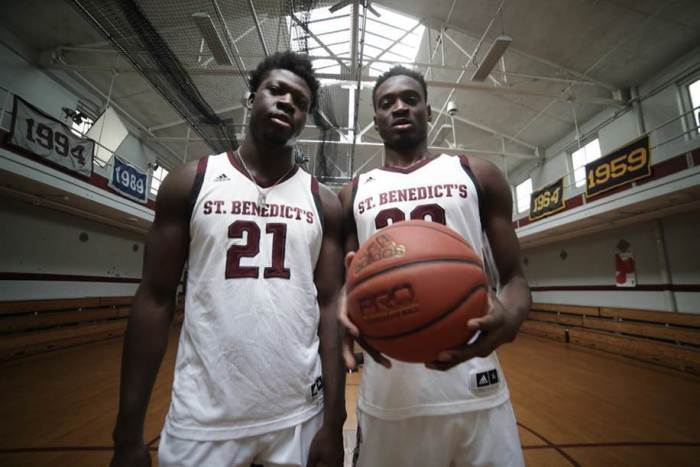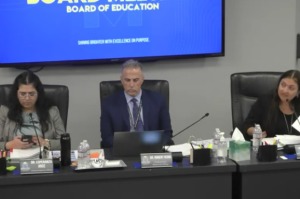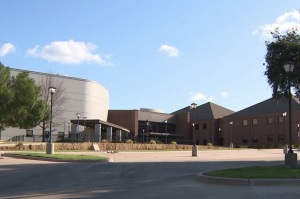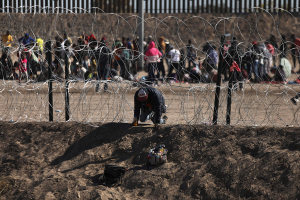Steph Curry series ‘Benedict Men’: How one school is helping minority students succeed with biblical principles

"Benedict Men,” the compelling new docuseries produced by Stephen Curry, highlights how one school is empowering its students by giving a voice to the voiceless and adhering to the biblical principles of integrity, respect, and “loving thy neighbor.”
The series, directed by 11-time Emmy Award winner Jonathan Hock, debuted in September on the streaming platform Quibi. It follows the high school basketball team at St. Benedict’s Preparatory School in Newark, New Jersey through their 2018-2019 season and their run for the state championship.
But while the docuseries highlights the school’s athletics — St. Benedict’s Gray Bees consistently rank in the top 25 high school basketball teams in the country — it’s about far more than basketball.
“Benedict Men” explores the emotional and physical pressures its teen subjects, primarily people of color, face — not only from their families and coaches, but from themselves and their peers — both on and off the court.
In an interview with The Christian Post, the school’s headmaster, Father Edwin Leahy, said “Benedict Men” was birthed out of a series of unlikely events, including “the strangest friendships and relationships, and several offhand comments.” The school’s success educating inner-city students was also featured on “60 Minutes” in 2016.
“There's no such thing as a coincidence,” he said. “God is the God of history, and God is in the middle of it. That’s what happened with '60 Minutes' and the Quibi piece, as well.”
The 74-year-old priest said he believes the docuseries gives an honest, heartfelt look at the struggles facing students of St. Benedict’s Prep. In addition to filming each of the team's 30 games, cameras followed students at early morning practices, classroom activity and home life.
“The struggles and the challenges facing our students are front and center, and I think [Jonathan Hock] did a masterful and fair job of telling our story,” Leahy said.
Curry, point guard for the Golden State Warriors, is the presenter and executive producer of the docuseries. Curry’s company, Unanimous Media, teamed up with Whistle Studios, Entertainment 360, and Select Films on the production.
The students were “amped” about Curry’s involvement in St. Benedict’s, according to Leahy, who said he was “grateful” to the NBA star for lending his voice to the series.
“It gives him some skin in the game,” Leahy said. “In so many of the kids' stories, you see the importance of a male presence. You see how dads — and the absence of dads — really influence the kids. It’s a big problem.”
Aside from having one of the top high school basketball programs in the country, St. Benedict’s Prep boasts an impressive 98% graduation rate, with 99% of graduating seniors attending college. Equipping students with the tools needed for success if basketball doesn’t work out, Leahy said, is key.
“All these kids see are athletes and entertainers, so they put all their eggs in that basket, and wind up with no college degree, sometimes no high school degree, because they thought they’d join the NBA,” he said. “When do they ever get to know brain surgeons, gastroenterologists or dentists? How often do we put those people in front of them?”
“When people watch this, they need to understand that this kind of academic pressure is necessary because these kids don’t have things handed to them,” he continued.
Much like the school itself, the history of St. Benedict Prep is anything but ordinary.
Operated by the Benedictine monks of Newark Abbey, the school started in 1868 to address the needs of the German immigrants and to build bridges between the Germans and the Irish.
But amid the racial unrest of the late 1960s and early 1970s, the school was forced to close as white families moved away and the neighborhood around St. Benedict's changed.
“Newark was always a rough and tumble hardscrabble town. Always. But it got ugly because of America's original sin, which is race and racism,” Leahy said. “After the school closed, we were sitting here with no common work. You can imagine how hard that was.”
After discussion and “soul-searching,” the monks decided to reopen an academic facility in 1973, with a mere 89 students. This time, the student body was comprised of mostly African-American and Puerto Rican youth instead of Catholic, Caucasian young men.
“But this school wasn’t going to be St. Benedict’s Prep; it was never our intention to reopen St. Benedict’s prep,” Leahy said. “One night at a parents meeting, one of the African-American parents said to me, ‘How come it was good enough to be St. Benedict’s Prep when it was all of you, but now that it’s all of us it can’t be St. Benedict’s Prep anymore?’”
That comment, Leahy said, "taught us we needed to take the cotton out of our ears, to shut up, and to listen. And then to let the people teach us how we could accompany them through life.”
That mindset has guided St. Benedict’s Prep for the last 50 years. The school’s motto, “whatever hurts my brother, hurts me,” asks that the student body be responsible for each other and treat one another with respect and kindness. The school's success, according to Father Leahy, is largely due to its focus on student leadership.
“The kids decide the operation of the place. They run the morning meeting, they make the decisions, they fight with me about what to do,” he said with a chuckle. “Our job as adults is to ensure they don’t make decisions that will permanently damage them and to make sure we keep them physically safe. But outside of that, the secret to our success is, we don't do for kids what the kids can do for themselves.”
Allowing students to make the school’s day-to-day decisions, he explained, “gives them a voice with a capital ‘V.’”
“Most kids of color feel that either they don’t have a voice because nobody pays attention, or if they do have one that doesn't matter,” he contended. “We've been living with this problem for decades. And unless people take to the streets and start turning over cars or something, it's hard to get white people's attention.”
Today, St. Benedict's has grown to 747 young men, most from African-American and Hispanic backgrounds, and 51 faculty members.
In May, the school became co-institutional, adding girls from the closing Benedictine Academy in Elizabeth, New Jersey. Leahy told CP that even the effort to combine the school was entirely student-driven.
“It's important that they discover or amplify their voice here, especially for young men, because we white people knew exactly what we had to do in order to make slavery work,” he said.
“We knew we had to neutralize, humiliate, and destroy emotionally the African male, and we still suffer from it today. So giving the young men a voice and allowing them to run the school is very, very important. I try to stay out of their way.”
St. Benedict's also places a focus on community — something most schools “don’t do well,” Leahy said. Even those who don’t graduate from St. Benedict’s regard themselves as alumni of the school — a “rare phenomenon you don’t see in other schools."
Through “Benedict Men,” Leahy hopes audiences see the importance of empowering and honoring those typically disregarded by society.
“Understanding the suffering of others and their reality is something this country desperately needs to do,” the priest said. “I hope that this docuseries gets people to understand at least a little bit of the sufferings that go into this. Understanding the sufferings of the other is what will allow this country to advance and that's exactly what we don't have right now.”
"Benedict Men" is now streaming on Quibi.




























